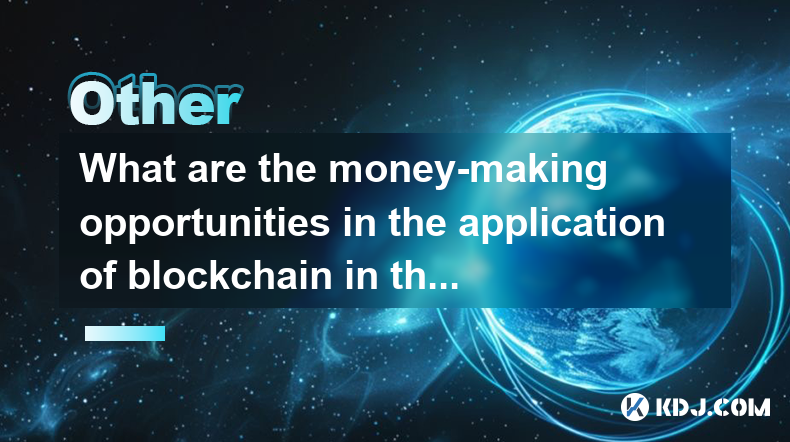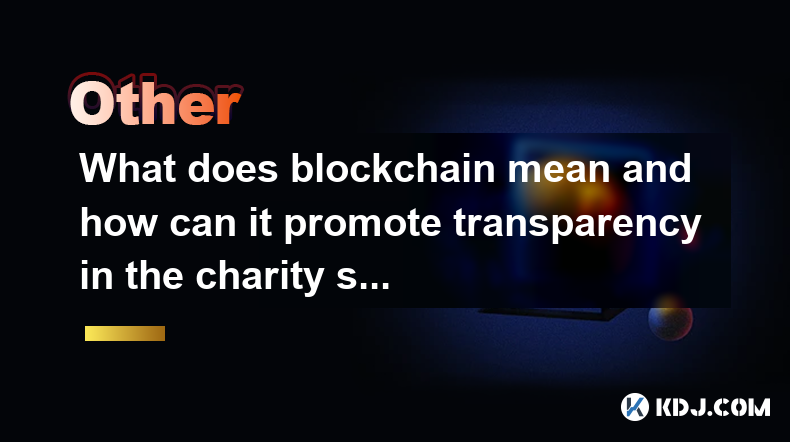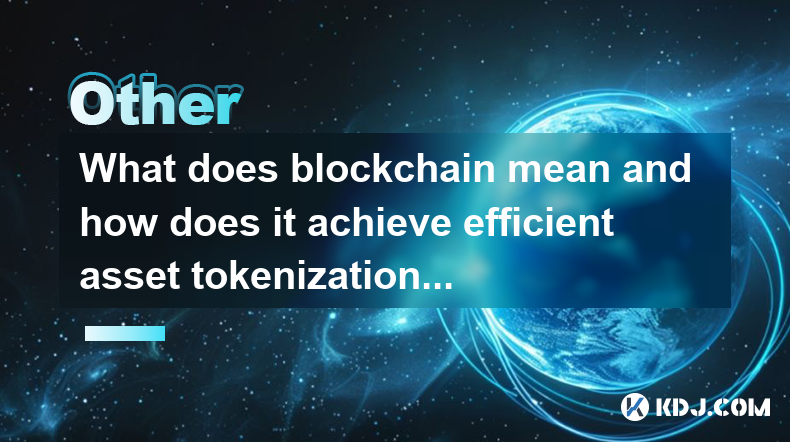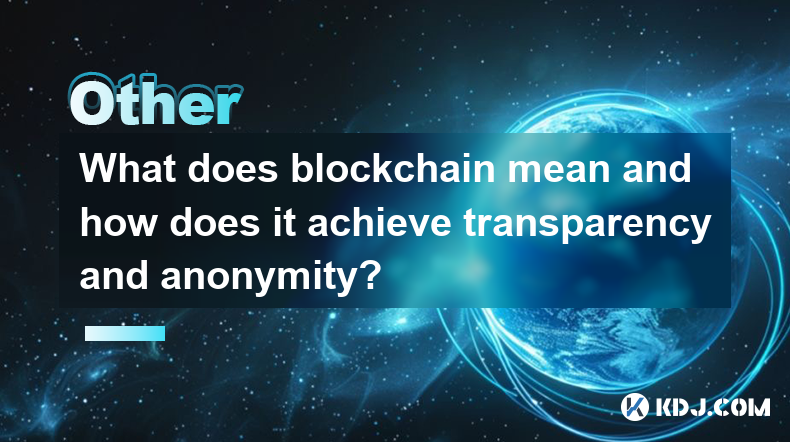-
 Bitcoin
Bitcoin $82,268.0001
-4.04% -
 Ethereum
Ethereum $1,777.8015
-5.02% -
 Tether USDt
Tether USDt $0.9997
-0.03% -
 XRP
XRP $2.0017
-5.57% -
 BNB
BNB $584.3181
-3.27% -
 USDC
USDC $0.9999
-0.02% -
 Solana
Solana $113.9101
-10.18% -
 Dogecoin
Dogecoin $0.1582
-7.95% -
 TRON
TRON $0.2338
-1.55% -
 Cardano
Cardano $0.6241
-8.78% -
 Toncoin
Toncoin $3.5629
-12.05% -
 UNUS SED LEO
UNUS SED LEO $9.3926
0.04% -
 Chainlink
Chainlink $12.4716
-8.37% -
 Stellar
Stellar $0.2537
-5.64% -
 Avalanche
Avalanche $18.0808
-5.86% -
 Sui
Sui $2.2582
-8.11% -
 Shiba Inu
Shiba Inu $0.0...01212
-2.66% -
 Hedera
Hedera $0.1562
-6.92% -
 Litecoin
Litecoin $81.9021
-1.77% -
 Polkadot
Polkadot $3.9168
-4.95% -
 MANTRA
MANTRA $6.2584
-0.81% -
 Bitcoin Cash
Bitcoin Cash $296.8025
-3.05% -
 Bitget Token
Bitget Token $4.4990
-1.96% -
 Dai
Dai $0.9999
0.02% -
 Ethena USDe
Ethena USDe $0.9996
-0.03% -
 Monero
Monero $212.8042
-2.13% -
 Pi
Pi $0.5633
-17.59% -
 Hyperliquid
Hyperliquid $11.1531
-17.45% -
 Uniswap
Uniswap $5.7444
-5.64% -
 Aptos
Aptos $5.0383
-5.12%
What are the money-making opportunities in the application of blockchain in the medical industry?
Blockchain offers lucrative opportunities in healthcare, from secure medical records to streamlined clinical trials and efficient supply chain management.
Apr 03, 2025 at 03:35 am

The integration of blockchain technology into the medical industry presents a myriad of money-making opportunities that can revolutionize healthcare systems. Blockchain's inherent characteristics, such as transparency, security, and immutability, make it an ideal solution for various medical applications. By leveraging blockchain, companies can develop innovative solutions that address critical issues like data security, patient privacy, and efficient management of medical records. These solutions not only improve healthcare services but also open up new revenue streams for businesses. From startups to established corporations, the potential to profit from blockchain in healthcare is vast and varied.
Secure Medical Records Management
One of the primary money-making opportunities in the application of blockchain in the medical industry lies in secure medical records management. Traditional systems are often vulnerable to data breaches and unauthorized access, which can lead to significant financial losses and damage to a healthcare provider's reputation. By using blockchain, companies can offer solutions that ensure patient data is stored securely and accessed only by authorized personnel. This not only enhances patient trust but also provides a competitive edge in the market. Companies can charge a premium for these secure services, creating a lucrative revenue stream.
Blockchain-based platforms can enable patients to have more control over their medical data. Patients can grant or revoke access to their records at any time, ensuring their privacy is maintained. This feature can be monetized by offering subscription-based services or one-time fees for access to the platform. Additionally, healthcare providers can benefit from reduced administrative costs and improved efficiency, as blockchain automates many processes that are currently manual. This efficiency can translate into cost savings, which can be passed on to patients or used to increase profit margins.
Streamlined Clinical Trials
Another significant opportunity for making money in the medical industry through blockchain is by streamlining clinical trials. Clinical trials are essential for the development of new drugs and treatments, but they are often plagued by inefficiencies, high costs, and data integrity issues. Blockchain can address these challenges by providing a transparent and immutable ledger of all trial data, ensuring that results are accurate and verifiable. Companies can develop platforms that facilitate the management of clinical trials, from patient recruitment to data collection and analysis.
By offering a blockchain-based solution for clinical trials, companies can attract pharmaceutical companies and research institutions looking to reduce costs and improve the reliability of their data. These platforms can charge fees for their services, either on a per-trial basis or through subscription models. Additionally, the transparency and security offered by blockchain can help in gaining regulatory approval more quickly, further reducing costs and time-to-market for new treatments. This can lead to significant savings for pharmaceutical companies, which can be shared with the platform providers.
Supply Chain Management
Blockchain technology can also be applied to improve supply chain management in the medical industry, presenting another avenue for generating revenue. The medical supply chain is complex and often involves multiple parties, from manufacturers to distributors and healthcare providers. Ensuring the integrity and authenticity of medical products is crucial, and blockchain can help achieve this by providing a tamper-proof record of the entire supply chain journey. Companies can develop blockchain-based solutions that track and verify the origin, quality, and movement of medical supplies.
By offering such solutions, companies can help healthcare providers and manufacturers reduce the risk of counterfeit products and improve overall efficiency. This can lead to cost savings and increased trust in the supply chain, which can be monetized through service fees or licensing agreements. Additionally, blockchain can facilitate faster and more accurate recalls of defective products, further enhancing safety and efficiency. Companies that provide these services can charge for their expertise and technology, creating a steady stream of income.
Healthcare Payment Systems
Blockchain can revolutionize healthcare payment systems, offering yet another money-making opportunity. Traditional payment systems in healthcare are often slow, costly, and prone to errors. By implementing blockchain-based payment solutions, companies can offer faster, more secure, and more transparent transactions. These solutions can reduce administrative costs for healthcare providers and improve the patient experience by simplifying billing and payment processes. Companies can charge fees for using their payment platforms, either per transaction or through subscription models.
Blockchain can also facilitate the use of cryptocurrencies in healthcare payments, providing an additional layer of security and privacy. Patients can pay for services using digital currencies, which can be particularly beneficial for those without traditional bank accounts. Companies that develop and manage these payment systems can earn revenue from transaction fees and by offering additional services, such as currency conversion and wallet management. The adoption of blockchain in healthcare payments can lead to significant cost savings and improved efficiency, which can be passed on to patients or used to increase profit margins.
Telemedicine and Remote Healthcare
The rise of telemedicine and remote healthcare presents another lucrative opportunity for blockchain applications. Blockchain can enhance the security and privacy of telemedicine platforms, ensuring that patient data is protected during virtual consultations. Companies can develop blockchain-based telemedicine solutions that offer secure video conferencing, data storage, and payment processing. These solutions can be monetized through subscription fees or per-use charges, providing a steady revenue stream.
Blockchain can also facilitate the integration of wearable devices and health apps into telemedicine platforms, allowing for real-time monitoring and data sharing. This can improve patient outcomes and reduce the need for in-person visits, leading to cost savings for both patients and healthcare providers. Companies that offer these integrated solutions can charge for their services, either through direct fees or by partnering with healthcare providers and insurance companies. The potential for blockchain to enhance telemedicine and remote healthcare is vast, offering numerous opportunities for companies to generate revenue.
Pharmaceutical Traceability
Blockchain can be used to enhance pharmaceutical traceability, providing another avenue for making money in the medical industry. Ensuring the authenticity and safety of pharmaceuticals is crucial, and blockchain can help achieve this by providing a transparent and immutable record of the entire supply chain. Companies can develop blockchain-based platforms that track and verify the origin, quality, and movement of pharmaceuticals, from manufacturing to distribution and dispensing.
By offering such platforms, companies can help pharmaceutical companies and healthcare providers reduce the risk of counterfeit drugs and improve overall efficiency. This can lead to cost savings and increased trust in the supply chain, which can be monetized through service fees or licensing agreements. Additionally, blockchain can facilitate faster and more accurate recalls of defective drugs, further enhancing safety and efficiency. Companies that provide these services can charge for their expertise and technology, creating a steady stream of income.
Data Monetization
Data monetization is another significant opportunity for making money through blockchain in the medical industry. Healthcare data is valuable for research, drug development, and personalized medicine, but it is often siloed and difficult to access. Blockchain can facilitate the secure sharing and monetization of healthcare data, allowing patients to control who has access to their information and how it is used. Companies can develop platforms that enable patients to share their data with researchers and pharmaceutical companies in exchange for compensation.
By offering such platforms, companies can create a marketplace for healthcare data, charging fees for facilitating transactions and ensuring data security. This can lead to a new revenue stream for both patients and platform providers. Additionally, blockchain can help ensure that data is used ethically and in compliance with regulations, further enhancing trust and value. Companies that develop and manage these data monetization platforms can earn revenue from transaction fees and by offering additional services, such as data analysis and reporting.
Smart Contracts for Healthcare
Smart contracts, powered by blockchain, offer another money-making opportunity in the medical industry. Smart contracts can automate various processes in healthcare, such as billing, claims processing, and patient consent management. By using smart contracts, companies can offer solutions that reduce administrative costs and improve efficiency for healthcare providers. These solutions can be monetized through service fees or subscription models, providing a steady revenue stream.
Smart contracts can also facilitate the execution of agreements between healthcare providers and patients, ensuring that terms are met and payments are processed automatically. This can improve trust and transparency in healthcare transactions, leading to better patient experiences and increased efficiency. Companies that develop and manage smart contract platforms can charge for their services, either per transaction or through subscription models. The potential for smart contracts to revolutionize healthcare processes is vast, offering numerous opportunities for companies to generate revenue.
Interoperability and Data Exchange
Blockchain can enhance interoperability and data exchange in the medical industry, presenting another avenue for making money. Healthcare systems often struggle with interoperability, as different providers use different systems that do not communicate effectively. Blockchain can facilitate secure and efficient data exchange between different healthcare providers, improving patient care and reducing costs. Companies can develop blockchain-based platforms that enable seamless data sharing and interoperability.
By offering such platforms, companies can help healthcare providers improve patient outcomes and reduce administrative costs. This can be monetized through service fees or licensing agreements, providing a steady revenue stream. Additionally, blockchain can ensure that data is shared securely and in compliance with regulations, further enhancing trust and value. Companies that develop and manage these interoperability platforms can earn revenue from transaction fees and by offering additional services, such as data analysis and reporting.
Patient Engagement and Incentives
Blockchain can also be used to enhance patient engagement and incentives, offering another money-making opportunity in the medical industry. By using blockchain, companies can develop platforms that reward patients for healthy behaviors, such as regular exercise, medication adherence, and participation in wellness programs. These platforms can use cryptocurrencies or tokens to incentivize patients, creating a new revenue stream for companies.
By offering such platforms, companies can help healthcare providers improve patient outcomes and reduce costs associated with chronic diseases. This can be monetized through service fees or by partnering with healthcare providers and insurance companies. Additionally, blockchain can ensure that incentives are distributed securely and transparently, further enhancing trust and value. Companies that develop and manage these patient engagement platforms can earn revenue from transaction fees and by offering additional services, such as data analysis and reporting.
Common Questions and Answers
What are the main money-making opportunities in the application of blockchain in the medical industry?
The main money-making opportunities include secure medical records management, streamlined clinical trials, supply chain management, healthcare payment systems, telemedicine and remote healthcare, pharmaceutical traceability, data monetization, smart contracts for healthcare, interoperability and data exchange, and patient engagement and incentives.
How can blockchain improve medical records management?
Blockchain can improve medical records management by providing a secure and immutable ledger of patient data, ensuring that records are accessible only by authorized personnel and reducing the risk of data breaches.
What benefits can blockchain bring to clinical trials?
Blockchain can streamline clinical trials by providing a transparent and immutable ledger of all trial data, reducing costs, improving data integrity, and facilitating faster regulatory approval.
How can blockchain enhance supply chain management in the medical industry?
Blockchain can enhance supply chain management by providing a tamper-proof record of the entire supply chain journey, ensuring the integrity and authenticity of medical products and reducing the risk of counterfeit goods.
What role can blockchain play in healthcare payment systems?
Blockchain can revolutionize healthcare payment systems by offering faster, more secure, and more transparent transactions, reducing administrative costs and improving the patient experience.
How can blockchain be used in telemedicine and remote healthcare?
Blockchain can enhance telemedicine and remote healthcare by providing secure video conferencing, data storage, and payment processing, as well as facilitating the integration of wearable devices and health apps.
What is the potential of blockchain in pharmaceutical traceability?
Blockchain can enhance pharmaceutical traceability by providing a transparent and immutable record of the entire supply chain, reducing the risk of counterfeit drugs and improving overall efficiency.
How can blockchain facilitate data monetization in the medical industry?
Blockchain can facilitate data monetization by enabling patients to securely share their data with researchers and pharmaceutical companies in exchange for compensation, creating a marketplace for healthcare data.
What are smart contracts and how can they be used in healthcare?
Smart contracts are self-executing contracts with the terms directly written into code. In healthcare, they can automate processes such as billing, claims processing, and patient consent management, reducing administrative costs and improving efficiency.
How can blockchain enhance interoperability and data exchange in healthcare?
Blockchain can enhance interoperability and data exchange by facilitating secure and efficient data sharing between different healthcare providers, improving patient care and reducing costs.
What role can blockchain play in patient engagement and incentives?
Blockchain can enhance patient engagement and incentives by rewarding patients for healthy behaviors using cryptocurrencies or tokens, improving patient outcomes and reducing costs associated with chronic diseases.
Disclaimer:info@kdj.com
The information provided is not trading advice. kdj.com does not assume any responsibility for any investments made based on the information provided in this article. Cryptocurrencies are highly volatile and it is highly recommended that you invest with caution after thorough research!
If you believe that the content used on this website infringes your copyright, please contact us immediately (info@kdj.com) and we will delete it promptly.
- Jack Dorsey Warns Bitcoin (BTC) Could Lose Its Open Ethos as Institutional Investment Grows
- 2025-04-03 22:45:11
- Kadena Launches Chainweb EVM with 20 New EVM-Compatible Chains
- 2025-04-03 22:45:11
- Currently, Shiba Inu (SHIB) is trading at $0.00001211 after experiencing a 1.65% decrease in the last 24 hours and a 5.03% decrease over the past 30 days. These figures show that while there is short-term selling pressure, the overall medium-term trend sh
- 2025-04-03 22:40:12
- Supermicro Systems with the NVIDIA B200 Outperform the Previous Generation of Systems with 3X the Token Generation Per Second
- 2025-04-03 22:40:12
- Supermicro Systems with the NVIDIA B200 Outperformed the Previous Generation of Systems by Delivering 3X the Token Generation Per Second
- 2025-04-03 22:35:12
- Kevin O'Leary and Dave Portnoy Join the Lineup of Speakers at Consensus Toronto 2025
- 2025-04-03 22:35:12
Related knowledge

What are the future development trends of blockchain game development?
Apr 03,2025 at 05:00am
Blockchain technology has revolutionized various industries, and gaming is no exception. As we look to the future, several trends are set to shape the development of blockchain games. These trends not only promise to enhance the gaming experience but also to integrate blockchain technology more seamlessly into the gaming ecosystem. Let's explore these t...

What are the maintenance costs of blockchain system development?
Apr 03,2025 at 06:07pm
The maintenance costs of blockchain system development are multifaceted and depend on various factors. These costs can include technical maintenance, security updates, infrastructure expenses, and personnel costs. Understanding these elements is crucial for anyone planning to develop or maintain a blockchain system. Technical MaintenanceTechnical mainte...

What are the money-making opportunities in the application of blockchain in the medical industry?
Apr 03,2025 at 03:35am
The integration of blockchain technology into the medical industry presents a myriad of money-making opportunities that can revolutionize healthcare systems. Blockchain's inherent characteristics, such as transparency, security, and immutability, make it an ideal solution for various medical applications. By leveraging blockchain, companies can develop ...

What does blockchain mean and how can it promote transparency in the charity sector?
Apr 03,2025 at 08:29pm
Blockchain technology is a decentralized, distributed ledger that records transactions across numerous computers. This ensures that the data is transparent and nearly impossible to alter retroactively. Essentially, blockchain serves as a digital ledger of all cryptocurrency transactions, enabling secure and direct exchanges without the need for intermed...

What does blockchain mean and how does it achieve efficient asset tokenization?
Apr 03,2025 at 07:57pm
Blockchain technology is a decentralized, distributed ledger that records transactions across numerous computers. It ensures that each transaction is secure, transparent, and immutable. The concept of blockchain was introduced with the launch of Bitcoin in 2009, but its applications have since expanded far beyond cryptocurrencies. At its core, blockchai...

What does blockchain mean and how does it achieve transparency and anonymity?
Apr 03,2025 at 11:28am
Blockchain technology is a decentralized, distributed ledger that records transactions across numerous computers. It ensures that once data is recorded, it cannot be altered retroactively without the alteration of all subsequent blocks and the consensus of the network. This technology underpins cryptocurrencies like Bitcoin and Ethereum, providing a sec...

What are the future development trends of blockchain game development?
Apr 03,2025 at 05:00am
Blockchain technology has revolutionized various industries, and gaming is no exception. As we look to the future, several trends are set to shape the development of blockchain games. These trends not only promise to enhance the gaming experience but also to integrate blockchain technology more seamlessly into the gaming ecosystem. Let's explore these t...

What are the maintenance costs of blockchain system development?
Apr 03,2025 at 06:07pm
The maintenance costs of blockchain system development are multifaceted and depend on various factors. These costs can include technical maintenance, security updates, infrastructure expenses, and personnel costs. Understanding these elements is crucial for anyone planning to develop or maintain a blockchain system. Technical MaintenanceTechnical mainte...

What are the money-making opportunities in the application of blockchain in the medical industry?
Apr 03,2025 at 03:35am
The integration of blockchain technology into the medical industry presents a myriad of money-making opportunities that can revolutionize healthcare systems. Blockchain's inherent characteristics, such as transparency, security, and immutability, make it an ideal solution for various medical applications. By leveraging blockchain, companies can develop ...

What does blockchain mean and how can it promote transparency in the charity sector?
Apr 03,2025 at 08:29pm
Blockchain technology is a decentralized, distributed ledger that records transactions across numerous computers. This ensures that the data is transparent and nearly impossible to alter retroactively. Essentially, blockchain serves as a digital ledger of all cryptocurrency transactions, enabling secure and direct exchanges without the need for intermed...

What does blockchain mean and how does it achieve efficient asset tokenization?
Apr 03,2025 at 07:57pm
Blockchain technology is a decentralized, distributed ledger that records transactions across numerous computers. It ensures that each transaction is secure, transparent, and immutable. The concept of blockchain was introduced with the launch of Bitcoin in 2009, but its applications have since expanded far beyond cryptocurrencies. At its core, blockchai...

What does blockchain mean and how does it achieve transparency and anonymity?
Apr 03,2025 at 11:28am
Blockchain technology is a decentralized, distributed ledger that records transactions across numerous computers. It ensures that once data is recorded, it cannot be altered retroactively without the alteration of all subsequent blocks and the consensus of the network. This technology underpins cryptocurrencies like Bitcoin and Ethereum, providing a sec...
See all articles























































































